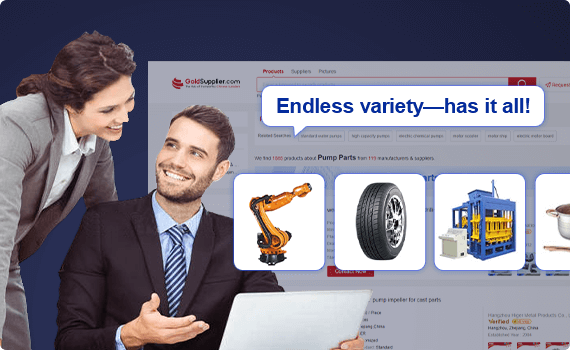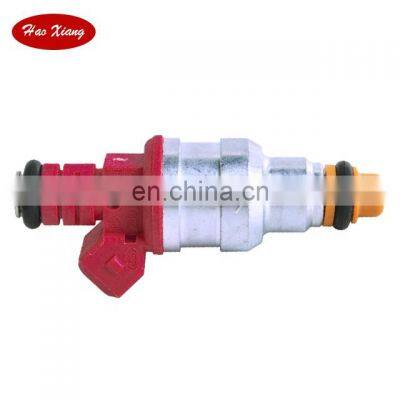Auto Injector Insights & Buyer's Guide
Auto injectors are a major advancement from traditional syringes, both in ease of use and in reliability. For many medical conditions, such as allergies and diabetes, auto-injectors are capable of dispensing precise medication doses within seconds, making them crucial in contemporary medicine. Their use in emergencies where time is critical is invaluable.
What is an Auto Injector and How Does it Work?
Understanding the Mechanism and Features
An auto injector is a medical device designed to simplify the process of giving injections. An auto injector comprises a needle, a syringe already filled with a medication, and a device that automates the insertion of the needle into the user's skin. This device is made to be safe and convenient to use so that even untrained people can provide critical medicine to patients. The auto-injecter is equipped with a number of features, including spring-loaded syringes and an assortment of other features, which make it useful for many different medical situations.
Key Components: Needle, Prefilled Syringe, and More
An auto injector includes several fundamental parts that integrate to provide a drug dose. The needle is hidden before usage, which guarantees safety and sterility. The medicine is contained in a prefilled syringe, removing the need to fill it manually, which saves time and mitigates mistakes regarding the correct dosage. Other parts, like the protective cap or the activation button, add to the ease of use and safety of the device. All these parts work seamlessly together to ensure proper delivery of drugs.
How Auto-Injectors Aid in Emergency Situations
Auto injectors are essential in emergencies and give medicine during the golden hour. For example, epinephrine auto-injectors are critical in managing anaphylactic reactions. These devices help to counter the dose of medication to be correctly epinephrine per dose given IM. The simplicity of auto-injectors makes them a vital component of emergency kits in all regions.
How Do Auto Injectors Compare to Traditional Syringes?
Advantages of Using an Auto Injector Device
Auto injectors have a number of benefits compared to standard syringes, especially in convenience and safety. None of the errors with medication delivery are possible with auto-injectors due to the user guidance built into them. Administered medications also alleviate anxiety concerning needle insertion because the process is often instantaneous and anesthesia-free. Patients who need frequent injections, like insulin-dependent diabetics, appreciate the convenience and painless nature of the device.
Comparing Injection Techniques: Auto Injector vs. Manual Syringe
The difference between auto-injectors and manual injectors is very distinctive. One, for example, requires steady control and precision, while the other automates the whole process and reduces the risk of incorrect administration – this is done by using an auto injector. According to Alagha, all devices are effective in giving accurate doses since they do not require extensive training, and I fully agree. This is a fact. The ease of use is even more important in cases such as non-clinic settings, at homes, and field work.
Systematic Review of Injection Systems
A review of injection systems noted a shift towards the use of auto-injectors as opposed to the older methods of injectors. These studies emphasize that patient satisfaction and reliability are enhanced with the use of auto-injectors. The review also highlights that further development in this area is needed, but consistent progress is being made to improve these devices. Therefore, auto-injectors are now a standard for a lot of medical functions.
What Are the Common Uses of Auto-Injectors?
Auto Injectors in Allergy and Anaphylaxis Management
Auto-injectors help manage allergies and anaphylaxis. For example, the EpiPen is designed to dispense epinephrine in injectable form for immediate use during critical situations. Auto injectors are small in size and light in weight, which is very convenient for persons suffering from allergies. Having access to life-saving medication provides peace of mind to allergy sufferers and their families.
The Role of Auto-Injectors in Diabetes Care
In the care of diabetes, patients use auto-injectors to administer insulin, which is vital for controlling the blood glucose levels. These devices guarantee that insulin is provided subcutaneously, which makes dosing accurate and consistent. For diabetics, the convenience of auto injectors means less time managing their condition and more time living their lives. With the changing of times, new models are coming out that are even easier to use.
Applications in Veterinary and Military Settings
Apart from healthcare, auto-injectors are used in military and veterinary practices. They simplify medication administration in veterinary medicine, alleviating anxiety for the animal as well as the veterinarian. In military applications, auto-injectors can administer antidotes to nerve agents, offering essential protection to the personnel in a toxic environment. These different uses emphasize the multi-functionality and significance of auto-injectors in different areas.
How to Choose the Right Auto Injector for Your Needs?
Factors to Consider: Model, Prefilled Options, and More
Selecting an auto injector comes with considerations such as the model's designation, whether it’s prefilled, and its application. Various models may have features like adjustable dosing, spring-loaded mechanisms, etc., which are useful in different medical practices. Many people prefer prefilled syringes because they are easier to use and have a lower contamination risk. Knowing these aspects is crucial for choosing the right device.
Understanding the Different Types: EpiPen, Auvi-Q, and Others
Each auto injector has a specific design to cater to particular cases and personal needs. The EpiPen is popular for managing severe allergic reactions, whilst the Auvi-Q is noted for its smaller size and user-friendly voice instructions. Other variants, such as the Rebif Rebidose, serve different dosing and therapy needs. Knowing all these options helps you understand what decision is right for your health situation.
Consulting Healthcare Professionals for Guidance
Choosing the right auto injector involves consultation with healthcare experts. They may personalize recommendations based on your medical history and treatment plan. Healthcare experts may provide training on how to use the device properly so you can confidently self-administer your medication. Health care professionals have very useful recommendations for the selection of the most effective and safe auto-injector that meets individual needs.
Frequently Asked Questions(FAQs)
Q: How is an epinephrine autoinjector used?
A: An epinephrine autoinjector is used for the emergency treatment of severe allergic reactions, or anaphylaxis. The device is designed for rapid delivery of epinephrine into the intramuscular or subcutaneous injection site, allowing for quick action to overcome symptoms.
Q: What are some common issues with auto-injector devices?
A: Common issues with auto injector devices include mechanical failures, such as leaks or malfunctions, and incorrect usage by patients. These issues can affect the reliability and effectiveness of the product, which is why proper training and guidelines are crucial.
Q: What role do trainers play in the use of auto-injector devices?
A: Trainers are essential for educating patients on the correct use of auto-injector devices. They provide hands-on experience with a trainer device, which helps patients become familiar with the product, reducing the risk of errors during actual use.
Q: Why is the depth of injection important in the design of auto-injector devices?
A: The depth of injection is crucial because it affects the delivery of the medication to the appropriate tissue, whether intramuscular or subcutaneous. Proper depth ensures the medication is absorbed effectively, which is vital for conditions like multiple sclerosis or rheumatoid arthritis.
Q: What are the regulatory challenges faced by manufacturers of auto-injector devices?
A: Manufacturers face regulatory challenges such as meeting safety standards, obtaining approvals from bodies like the U.S. FDA, and ensuring compliance with guidelines for self-administration. These challenges require rigorous testing and documentation to ensure the product's safety and efficacy.
Q: How can leaks in auto-injector devices be prevented?
A: Leaks can be prevented by improving the mechanical design of the device, such as using high-quality materials and conducting thorough testing during the product development phase. Regular maintenance and proper storage by the user also help in preventing leaks.
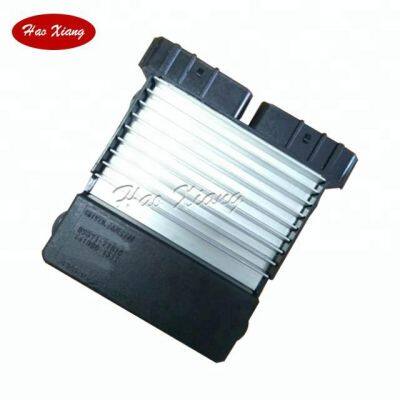 The Auto Injector Driver 89871-71010/131000-1331NegotiableMOQ: 1HS Electrical Technology Co,LTD3 Yrs
The Auto Injector Driver 89871-71010/131000-1331NegotiableMOQ: 1HS Electrical Technology Co,LTD3 Yrs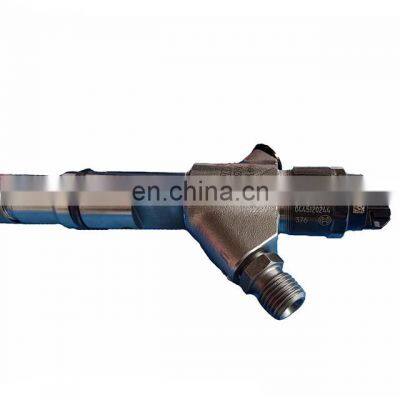 Auto Parts Diesel Injector 0445120150 0445120244NegotiableMOQ: 1Jingjiang Fuji Technology Co., Ltd.4 Yrs
Auto Parts Diesel Injector 0445120150 0445120244NegotiableMOQ: 1Jingjiang Fuji Technology Co., Ltd.4 Yrs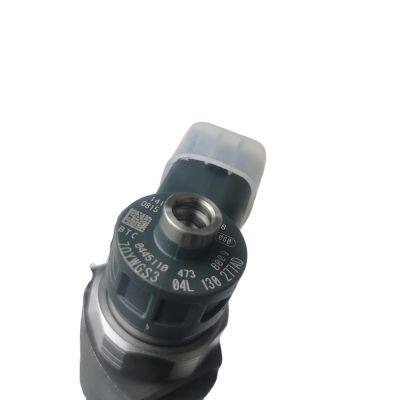 HOT SALE Bo-s-ch Common Rail Diesel Engine Fuel Injector 0445110249 for Mazda AutoNegotiableMOQ: 1 UnitWarranty: 6Monthswarranty: 6 Monthsweight (kg): 0.7Jining Pinbo Import And Export Co.,ltd.1 Yr
HOT SALE Bo-s-ch Common Rail Diesel Engine Fuel Injector 0445110249 for Mazda AutoNegotiableMOQ: 1 UnitWarranty: 6Monthswarranty: 6 Monthsweight (kg): 0.7Jining Pinbo Import And Export Co.,ltd.1 Yr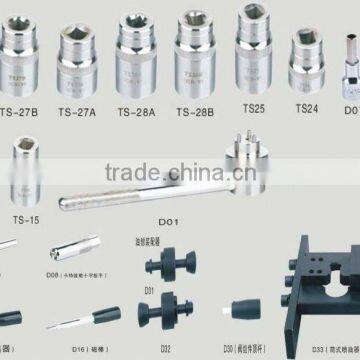 Tools for Assembling and Disassembling Auto InjectorNegotiableMOQ: 1 UnitType: Emergency Tool KitCertification: ISO9001:2008Place of Origin: Shandong, ChinaBrand Name: HaiyuTaian Haiyu Machinery Co., Ltd.5 Yrs
Tools for Assembling and Disassembling Auto InjectorNegotiableMOQ: 1 UnitType: Emergency Tool KitCertification: ISO9001:2008Place of Origin: Shandong, ChinaBrand Name: HaiyuTaian Haiyu Machinery Co., Ltd.5 Yrs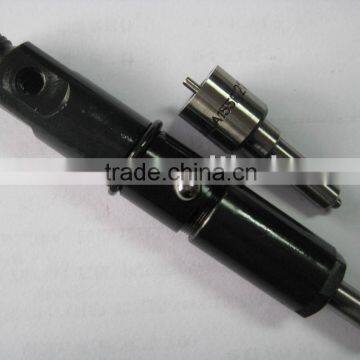 Auto Injector Nozzle DLLA155P277 for CumminsUS$ 2 - 10MOQ: 50 PiecesPlace of Origin: Zhejiang, ChinaBrand Name: shuntianModel Number: DLLA155P277Ningbo Shuntian Fuel Injection Equipment Co., Ltd.5 Yrs
Auto Injector Nozzle DLLA155P277 for CumminsUS$ 2 - 10MOQ: 50 PiecesPlace of Origin: Zhejiang, ChinaBrand Name: shuntianModel Number: DLLA155P277Ningbo Shuntian Fuel Injection Equipment Co., Ltd.5 Yrs Auto Injector Testing Machine DTS-709US$ 4,000 - 4,200MOQ: 1 SetBrand Name: DONGTAIModel Number: DTS709Power: ElectronicTaian Dongtai Machine Manufacturing Co., Ltd.5 Yrs
Auto Injector Testing Machine DTS-709US$ 4,000 - 4,200MOQ: 1 SetBrand Name: DONGTAIModel Number: DTS709Power: ElectronicTaian Dongtai Machine Manufacturing Co., Ltd.5 Yrs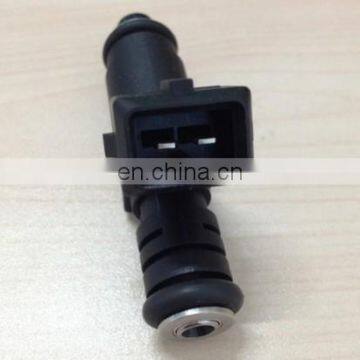 Auto Injector Nozzles / Fuel Injector OEM 5WY-2805AUS$ 3 - 12MOQ: 10 SetsBrand Name: ORIGINALPlace of Origin: ChinaModel Number: 5WY-2805AType: InjectorDodge Auto Parts Fuel Injector Trade Co., Ltd.5 Yrs
Auto Injector Nozzles / Fuel Injector OEM 5WY-2805AUS$ 3 - 12MOQ: 10 SetsBrand Name: ORIGINALPlace of Origin: ChinaModel Number: 5WY-2805AType: InjectorDodge Auto Parts Fuel Injector Trade Co., Ltd.5 Yrs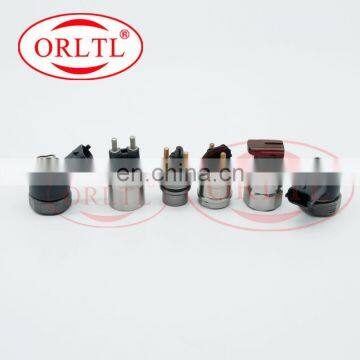 ORLTL Original Injector Solenoid Valve Assy Auto Injector Solenoid Valve for Common Rail InjectorUS$ 19.9 - 19.9MOQ: 1 PieceBrand Name: ORLTLPlace of Origin: ChinaWarranty: 12 MonthsBeijing Voyage Machinery Parts Co., Ltd.5 Yrs
ORLTL Original Injector Solenoid Valve Assy Auto Injector Solenoid Valve for Common Rail InjectorUS$ 19.9 - 19.9MOQ: 1 PieceBrand Name: ORLTLPlace of Origin: ChinaWarranty: 12 MonthsBeijing Voyage Machinery Parts Co., Ltd.5 Yrs M-N103 2016 Auto Injector Gun Meso Mini Meso Gun Beauty Machine for SaleUS$ 1 - 200MOQ: 1 SetFeature: Acne Treatment, Dark Circles, Moisturizer, Skin Rejuvenation, Skin TighteningOperation System: OtherPlace of Origin: Guangdong, ChinaBrand Name: maxbeautyGuangzhou Maxbeauty Co., Ltd.5 Yrs
M-N103 2016 Auto Injector Gun Meso Mini Meso Gun Beauty Machine for SaleUS$ 1 - 200MOQ: 1 SetFeature: Acne Treatment, Dark Circles, Moisturizer, Skin Rejuvenation, Skin TighteningOperation System: OtherPlace of Origin: Guangdong, ChinaBrand Name: maxbeautyGuangzhou Maxbeauty Co., Ltd.5 Yrs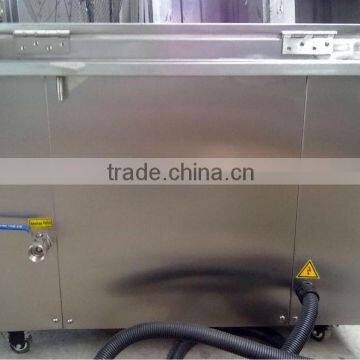 Auto Ultrasonic Injector CleaningUS$ 2,300 - 12,000MOQ: 1 SetCondition: NewPlace of Origin: Shandong, ChinaBrand Name: SinobakrModel Number: Ultrasonic Washing MachineJinan Bakr Ultrasonic Technology Co., Ltd.5 Yrs
Auto Ultrasonic Injector CleaningUS$ 2,300 - 12,000MOQ: 1 SetCondition: NewPlace of Origin: Shandong, ChinaBrand Name: SinobakrModel Number: Ultrasonic Washing MachineJinan Bakr Ultrasonic Technology Co., Ltd.5 Yrs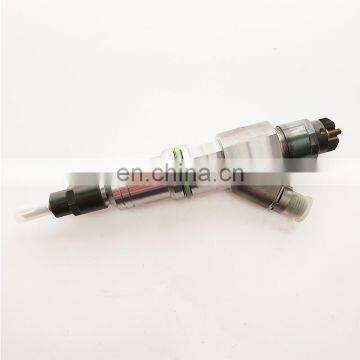 Auto Engines Injector 0445120092 Fuel Injector for TruckUS$ 100 - 150MOQ: 1 PieceBrand Name: DCECPlace of Origin: Hubei, ChinaWarranty: 6months, 6monthsDsengineparts5 Yrs
Auto Engines Injector 0445120092 Fuel Injector for TruckUS$ 100 - 150MOQ: 1 PieceBrand Name: DCECPlace of Origin: Hubei, ChinaWarranty: 6months, 6monthsDsengineparts5 Yrs Auto Repair Parts for Piezo InjectorUS$ 80 - 120MOQ: 100 SetsBrand Name: Neutral,YTPlace of Origin: Shandong, ChinaModel Number: auto repair parts for piezo injectorWarranty: 6 MonthsLiaocheng Yitong Diesel Parts Co., Ltd.5 Yrs
Auto Repair Parts for Piezo InjectorUS$ 80 - 120MOQ: 100 SetsBrand Name: Neutral,YTPlace of Origin: Shandong, ChinaModel Number: auto repair parts for piezo injectorWarranty: 6 MonthsLiaocheng Yitong Diesel Parts Co., Ltd.5 Yrs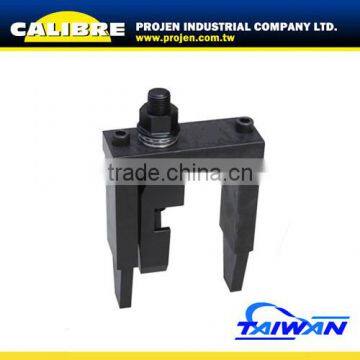 CALIBRE Auto Repair Injector PullerNegotiableMOQ: 200 PiecesPlace of Origin: Taiwan, ChinaBrand Name: CALIBRE or Customized Brand NameModel Number: CAB0015Warranty: 1 YearsProjen Industrial Company Ltd.5 Yrs
CALIBRE Auto Repair Injector PullerNegotiableMOQ: 200 PiecesPlace of Origin: Taiwan, ChinaBrand Name: CALIBRE or Customized Brand NameModel Number: CAB0015Warranty: 1 YearsProjen Industrial Company Ltd.5 Yrs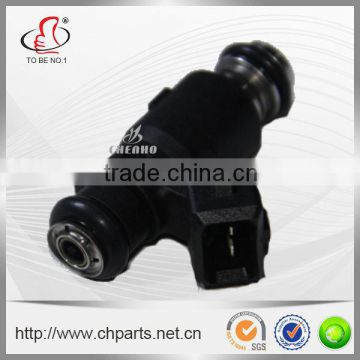 Auto Part Fuel Injector 25345994AUS$ 0.99 - 20.99MOQ: 100 PiecesType: Injector NozzleSize: Same as OEM size, Same as OEM sizeCar Make: mitsubishiOE NO.: 25345994ARuian Chenho Auto Electronic Co., Ltd.5 Yrs
Auto Part Fuel Injector 25345994AUS$ 0.99 - 20.99MOQ: 100 PiecesType: Injector NozzleSize: Same as OEM size, Same as OEM sizeCar Make: mitsubishiOE NO.: 25345994ARuian Chenho Auto Electronic Co., Ltd.5 Yrs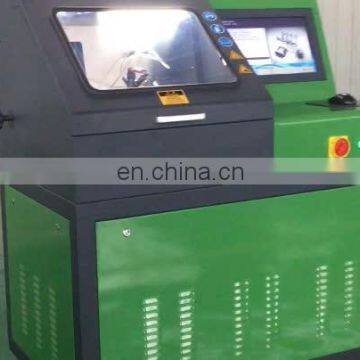 Common Rail Injector Auto Testing Machine for Eur 3 InjectorUS$ 3,500 - 5,000MOQ: 1 SetBrand Name: JHPlace of Origin: Shandong, ChinaModel Number: JH-CRI200BPower: ElectronicTaian Junhui Automobile Maintenance Equipment Co., Ltd.5 Yrs
Common Rail Injector Auto Testing Machine for Eur 3 InjectorUS$ 3,500 - 5,000MOQ: 1 SetBrand Name: JHPlace of Origin: Shandong, ChinaModel Number: JH-CRI200BPower: ElectronicTaian Junhui Automobile Maintenance Equipment Co., Ltd.5 Yrs OE CDH210 Auto Engine Parts Fuel InjectorUS$ 10 - 50MOQ: 50 PiecesBrand Name: BOCHIPlace of Origin: Chongqing, ChinaBochi Corporation5 Yrs
OE CDH210 Auto Engine Parts Fuel InjectorUS$ 10 - 50MOQ: 50 PiecesBrand Name: BOCHIPlace of Origin: Chongqing, ChinaBochi Corporation5 Yrs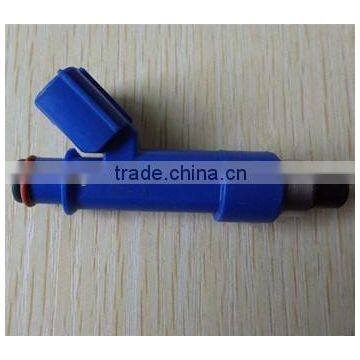 Popular Auto Fuel Injector For TOYOTA 23250-21040NegotiableMOQ: 10 PairsOE NO.: 23250-21040Place of Origin: Guangdong, ChinaBrand Name: fengmingModel Number: 23250-21040Guangzhou Fengming Auto Parts Co., Ltd.5 Yrs
Popular Auto Fuel Injector For TOYOTA 23250-21040NegotiableMOQ: 10 PairsOE NO.: 23250-21040Place of Origin: Guangdong, ChinaBrand Name: fengmingModel Number: 23250-21040Guangzhou Fengming Auto Parts Co., Ltd.5 Yrs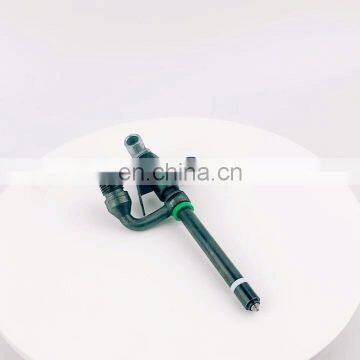 Auto Parts Pencil Fuel Injector RE38037US$ 12 - 19MOQ: 6 PiecesBrand Name: SINGOPlace of Origin: Zhejiang, ChinaModel Number: RE38037Warranty: 12 MonthsHangzhou Singo Mechanical & Electrical Co., Ltd.5 Yrs
Auto Parts Pencil Fuel Injector RE38037US$ 12 - 19MOQ: 6 PiecesBrand Name: SINGOPlace of Origin: Zhejiang, ChinaModel Number: RE38037Warranty: 12 MonthsHangzhou Singo Mechanical & Electrical Co., Ltd.5 Yrs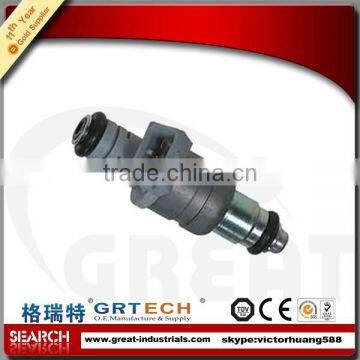 VAZ6238 Auto Fuel Injector Nozzle for LadaUS$ 9 - 11MOQ: 500 PiecesType: InjectorSize: standard as oemCar Make: LADAOE NO.: DEKA-1D fuel injector nozzleJiangsu Great Industrials (Group) Corp. Ltd.5 Yrs
VAZ6238 Auto Fuel Injector Nozzle for LadaUS$ 9 - 11MOQ: 500 PiecesType: InjectorSize: standard as oemCar Make: LADAOE NO.: DEKA-1D fuel injector nozzleJiangsu Great Industrials (Group) Corp. Ltd.5 Yrs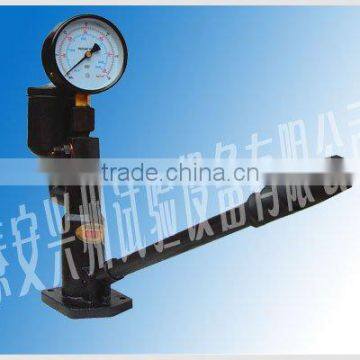 PS400AI -- Auto Diesel Fuel Injector Nozzle TesterUS$ 77 - 107MOQ: 1 SetPlace of Origin: Shandong, ChinaBrand Name: XINGZHOUModel Number: PS400AITaian Xingzhou Experimental Equipment Co., Ltd.5 Yrs
PS400AI -- Auto Diesel Fuel Injector Nozzle TesterUS$ 77 - 107MOQ: 1 SetPlace of Origin: Shandong, ChinaBrand Name: XINGZHOUModel Number: PS400AITaian Xingzhou Experimental Equipment Co., Ltd.5 Yrs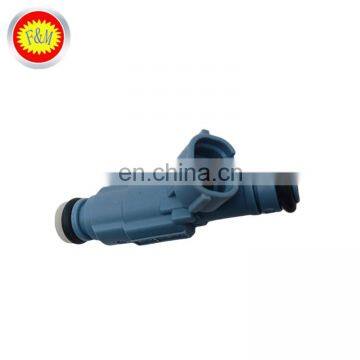 Auto Parts High Quality Fuel Injector Nozzle 35310-2G300 For CarUS$ 4.5 - 5.3MOQ: 10 PiecesBrand Name: FengmingPlace of Origin: Guangdong, ChinaWarranty: 12 monthsGuangzhou Fengming Auto Parts Co., Ltd5 Yrs
Auto Parts High Quality Fuel Injector Nozzle 35310-2G300 For CarUS$ 4.5 - 5.3MOQ: 10 PiecesBrand Name: FengmingPlace of Origin: Guangdong, ChinaWarranty: 12 monthsGuangzhou Fengming Auto Parts Co., Ltd5 Yrs Auto Engine Parts For Suzuki Carry F10a 0280155964 Fuel Injector ConnectorUS$ 7 - 7.5MOQ: 4 PiecesBrand Name: FENGMINGPlace of Origin: Guangdong, ChinaSize: OEM Standard SizeWarranty: 6 monthsGuangzhou Fengming Auto Parts Co., Ltd.5 Yrs
Auto Engine Parts For Suzuki Carry F10a 0280155964 Fuel Injector ConnectorUS$ 7 - 7.5MOQ: 4 PiecesBrand Name: FENGMINGPlace of Origin: Guangdong, ChinaSize: OEM Standard SizeWarranty: 6 monthsGuangzhou Fengming Auto Parts Co., Ltd.5 Yrs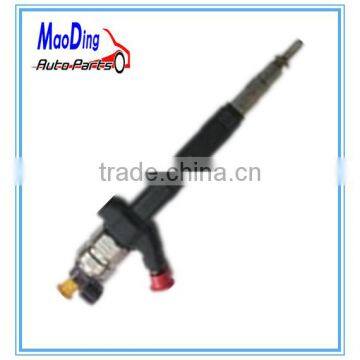 High Quanlity Injector Assembly for JMC Transit V348 Auto PartNegotiableMOQ: 1 PieceCar Make: transit V348Model Number: JMCWarranty: 1 YearsHangzhou Maoding Auto Parts Co., Ltd.5 Yrs
High Quanlity Injector Assembly for JMC Transit V348 Auto PartNegotiableMOQ: 1 PieceCar Make: transit V348Model Number: JMCWarranty: 1 YearsHangzhou Maoding Auto Parts Co., Ltd.5 Yrs Fuel Injector Import Auto Parts Suitable for MERCEDES BENZNegotiableMOQ: 20 PiecesPlace of Origin: Jiangsu, ChinaBrand Name: FREECARSModel Number: FCS-BZPR-171Guangzhou Sun Asia Import And Export Co., Ltd.5 Yrs
Fuel Injector Import Auto Parts Suitable for MERCEDES BENZNegotiableMOQ: 20 PiecesPlace of Origin: Jiangsu, ChinaBrand Name: FREECARSModel Number: FCS-BZPR-171Guangzhou Sun Asia Import And Export Co., Ltd.5 Yrs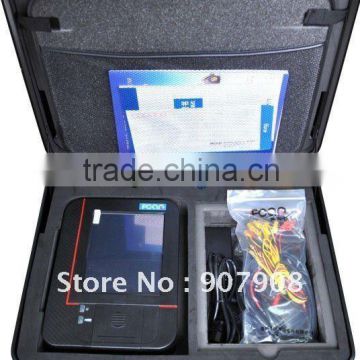 Auto Universal Scanner F3-W Injector Test Compression TestUS$ 0.1 - 0.2MOQ: 1 SetType: Engine AnalyzerVoltage: 12VPower: 12VCertification: CE/ ISO 9001:2000Shenzhen Fcar Technology Co., Ltd.5 Yrs
Auto Universal Scanner F3-W Injector Test Compression TestUS$ 0.1 - 0.2MOQ: 1 SetType: Engine AnalyzerVoltage: 12VPower: 12VCertification: CE/ ISO 9001:2000Shenzhen Fcar Technology Co., Ltd.5 Yrs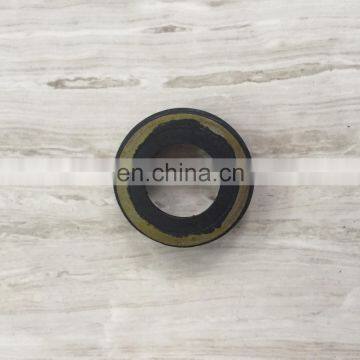 Auto Spare Parts Injector Holder Seal for Hilux Vigo 1KD 2KD Engine OE 23682-0L010 23682-30020US$ 1 - 3MOQ: 100 PiecesBrand Name: GOGOPlace of Origin: Zhejiang, ChinaModel Number: GG-CPS004Type: Crankshaft SensorSuzhou Qqqpet Electronic Technology Co., Ltd.5 Yrs
Auto Spare Parts Injector Holder Seal for Hilux Vigo 1KD 2KD Engine OE 23682-0L010 23682-30020US$ 1 - 3MOQ: 100 PiecesBrand Name: GOGOPlace of Origin: Zhejiang, ChinaModel Number: GG-CPS004Type: Crankshaft SensorSuzhou Qqqpet Electronic Technology Co., Ltd.5 Yrs Purchaser requested specs for M11 Engine Parts Auto Injector 34066042025-11-22 08:10:52
Purchaser requested specs for M11 Engine Parts Auto Injector 34066042025-11-22 08:10:52 Procurement Lead requested specs for engine injector ISDe 4937065 0445120123 auto injector2025-11-22 07:41:14
Procurement Lead requested specs for engine injector ISDe 4937065 0445120123 auto injector2025-11-22 07:41:14 Sourcing Manager requested a quote for Auto injector nozzle diesel g3s50 G3 S502025-11-21 19:32:54
Sourcing Manager requested a quote for Auto injector nozzle diesel g3s50 G3 S502025-11-21 19:32:54 Verified Buyer requested a quote for Veterinary continuous syringe with rules metal syringe auto injector2025-11-21 20:11:51
Verified Buyer requested a quote for Veterinary continuous syringe with rules metal syringe auto injector2025-11-21 20:11:51 Importer inquired about High Quality Auto Injector Nozzle 732965L CDH275 MD319792 CDH-2754 hours ago
Importer inquired about High Quality Auto Injector Nozzle 732965L CDH275 MD319792 CDH-2754 hours ago Sourcing Manager requested a quote for Factory Direct High Quality Auto Injector 2200CC Motorcycle Fuel Injector18 hours ago
Sourcing Manager requested a quote for Factory Direct High Quality Auto Injector 2200CC Motorcycle Fuel Injector18 hours ago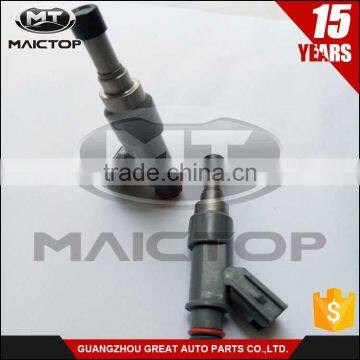 Durable Auto Diesel Engine Parts Fuel Injector Nozzle for Toyota Hilux Hiace 23250-75100US$ 1 - 10MOQ: 10 PiecesType: InjectorSize: Standard SizeCar Make: Toyota HiluxOE NO.: 23250-75100Guangzhou Great Auto Parts Co., Ltd.5 Yrs
Durable Auto Diesel Engine Parts Fuel Injector Nozzle for Toyota Hilux Hiace 23250-75100US$ 1 - 10MOQ: 10 PiecesType: InjectorSize: Standard SizeCar Make: Toyota HiluxOE NO.: 23250-75100Guangzhou Great Auto Parts Co., Ltd.5 Yrs Auto Injector Assembly-Bosch Common Rail Injector AssemblyUS$ 125 - 135MOQ: 4 PiecesBrand Name: DIESEL PARTSPlace of Origin: ChinaModel Number: 0 445 120 078Type: Injector NozzleChina-Lutong Parts Plant
Auto Injector Assembly-Bosch Common Rail Injector AssemblyUS$ 125 - 135MOQ: 4 PiecesBrand Name: DIESEL PARTSPlace of Origin: ChinaModel Number: 0 445 120 078Type: Injector NozzleChina-Lutong Parts Plant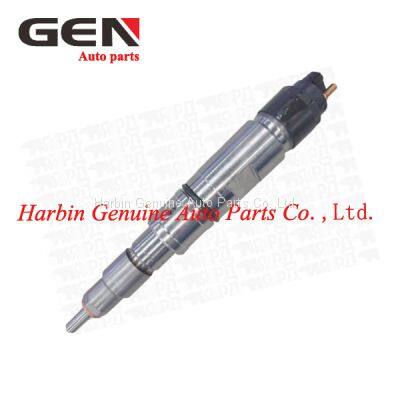 CNG Injector 53443.1112010, 0445120460US$ 10 - 15MOQ: 10 PiecesBrand Name: NinjaPlace of Origin: ChinaModel Number: 53443.1112010, 0445120460OE NO.: 53443.1112010, 0445120460Harbin Genuine Auto Parts Co.,Ltd
CNG Injector 53443.1112010, 0445120460US$ 10 - 15MOQ: 10 PiecesBrand Name: NinjaPlace of Origin: ChinaModel Number: 53443.1112010, 0445120460OE NO.: 53443.1112010, 0445120460Harbin Genuine Auto Parts Co.,Ltd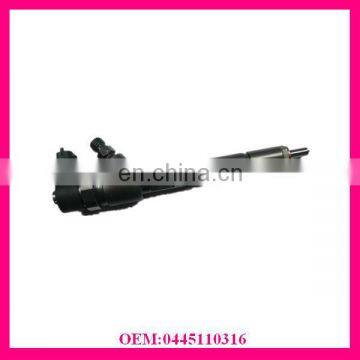 Auto Injector 0445110316US$ 70 - 149MOQ: 10 PiecesModel Number: 0445110316Type: InjectorSize: StandardOE NO.: 0445110316Guangzhou Haoxiang Auto Parts Co., Ltd.
Auto Injector 0445110316US$ 70 - 149MOQ: 10 PiecesModel Number: 0445110316Type: InjectorSize: StandardOE NO.: 0445110316Guangzhou Haoxiang Auto Parts Co., Ltd. CNC602 (Auto Injector Cleaner & Tester)NegotiableMOQ: 1 SetBrand Name: MSN:echocbo@hotmail.comPlace of Origin: ChinaModel Number: CNC602 (Auto injector cleaner & tester)Canbusobd Technology Co.,ltd
CNC602 (Auto Injector Cleaner & Tester)NegotiableMOQ: 1 SetBrand Name: MSN:echocbo@hotmail.comPlace of Origin: ChinaModel Number: CNC602 (Auto injector cleaner & tester)Canbusobd Technology Co.,ltd CNC602 Auto Injector Cleaner & TesterNegotiableMOQ: 1 PieceBrand Name: bringnazhongbang@hotmail.comPlace of Origin: ChinaModel Number: free shippingCanbusobd Technology Co,ltd
CNC602 Auto Injector Cleaner & TesterNegotiableMOQ: 1 PieceBrand Name: bringnazhongbang@hotmail.comPlace of Origin: ChinaModel Number: free shippingCanbusobd Technology Co,ltd
